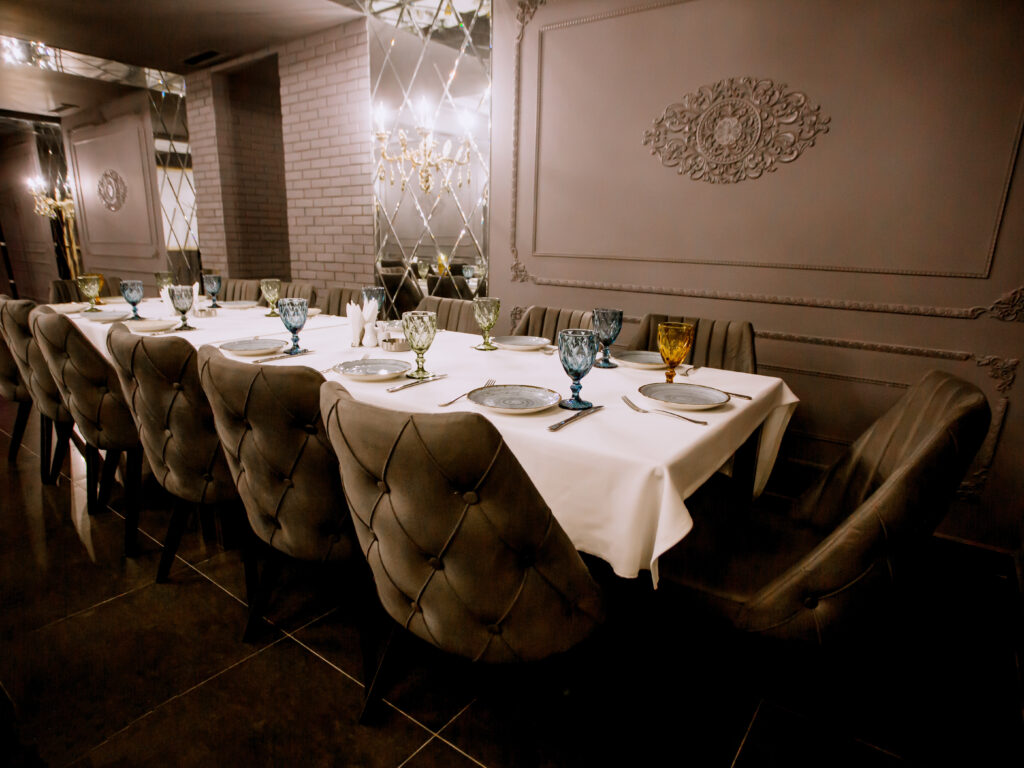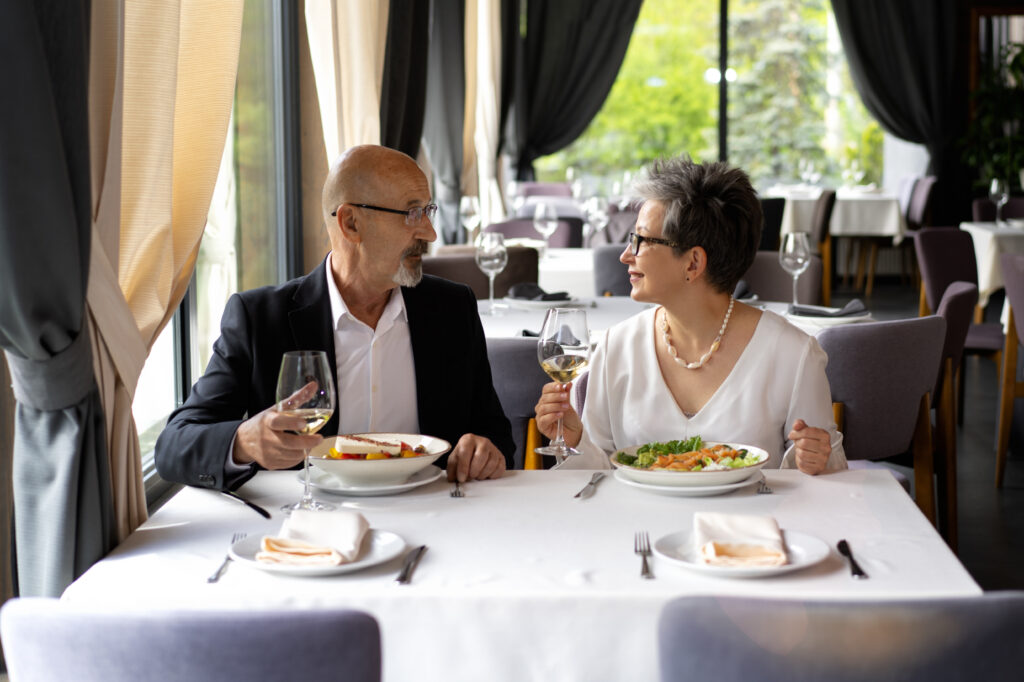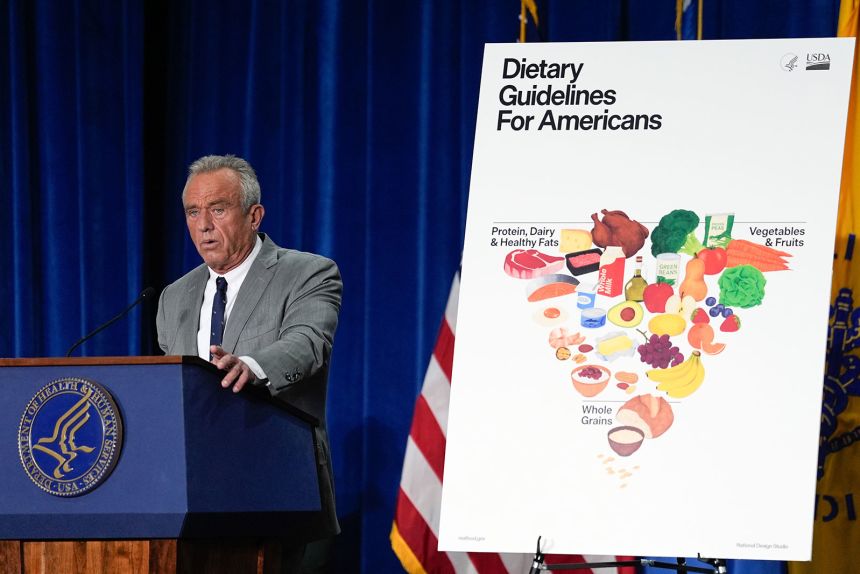Florida’s fine dining scene is vibrant, sophisticated, and high-stakes. Whether you’re operating a Michelin-starred kitchen on Miami Beach, managing an award-winning tasting menu in Tampa, or running a boutique bistro in historic Sarasota, the expectations are high—and so are the risks. Fine dining establishments in Florida are more than just places to eat; they are curated experiences built on precision, ambiance, and reputation. These businesses depend on seamless operations , exceptional staff, and an impeccable brand image to thrive in a competitive and reputation-sensitive market.
Yet, amid the pursuit of culinary excellence, many fine dining owners underestimate one critical factor: comprehensive restaurant insurance coverage in Florida. In an industry where margins can be tight and reputational damage is costly, insurance isn’t just a compliance requirement or a back-office detail—it’s an essential component of a long-term business strategy. The right insurance policy acts as a financial shield, protecting your restaurant from devastating losses caused by fire, water damage, equipment failure, cyberattacks, natural disasters, employee-related claims, or liability lawsuits from guests.
Florida adds another layer of complexity to the mix. The state’s unique geography and climate expose restaurants to a broad range of high-impact risks, from hurricane damage and flooding to year-round electrical storms and power outages. Add to this the high turnover rate in hospitality staffing, the increasing prevalence of customer injury claims, and the rising cost of litigation, and the need for comprehensive protection becomes undeniable.

Why Insurance Matters More for Fine Dining Establishments
Fine dining restaurants operate in a different league compared to casual eateries—not just in terms of price point, but in operational complexity, customer expectations, and financial risk. In Florida’s competitive hospitality market, these upscale venues face a multitude of challenges that make robust insurance coverage not just advisable, but essential.
From high-value wine collections and imported kitchen equipment to exclusive ingredients sourced globally, fine dining restaurants often house assets that far exceed the limits of a standard commercial policy. Add to that a highly trained, often tip-dependent staff, specialized service protocols, and strict compliance with health and liquor regulations, and you have an intricate ecosystem where even a minor disruption can cause outsized losses.
A major issue is that generic business insurance packages are rarely equipped to handle this level of risk. What works for a local diner or fast-food franchise may fall short for a white-tablecloth establishment serving $500 tasting menus and vintage wines. Fine dining demands a tailored approach— comprehensive restaurant insurance coverage in Florida that accounts for the very specific risks these businesses face.
Elevated Expectations, Elevated Risks
In the fine dining world, guests aren’t just paying for food—they’re paying for atmosphere, exclusivity, consistency, and perfection. This elevated guest experience is fragile and highly susceptible to a wide range of disruptions:
- Kitchen Fires: A small flare-up on the line can damage not only physical property but also the restaurant’s ability to operate for days or weeks—especially if electrical systems or imported equipment are affected.
- Power Outages: Florida’s climate makes outages a real threat. Losing refrigeration, lighting, and HVAC systems can result in spoiled inventory, canceled reservations, and lost revenue, particularly on peak nights.
- Foodborne Illness Claims: Fine dining patrons expect exceptional food safety. A single complaint—whether legitimate or not—can prompt investigations, lawsuits, or social media backlash that damages your reputation irreparably.
- Liquor Liability: Serving premium cocktails and rare wines isn’t without risk. If an intoxicated guest causes harm to themselves or others, your business could face devastating liability if not properly insured.
- Guest Injury or Slip-and-Fall: Marble floors, dim lighting, or even valet mishaps can lead to bodily injury claims that trigger legal action, especially when high-net-worth individuals are involved.
In such a refined environment, even one underinsured or overlooked incident can spiral into a reputational and financial crisis. A restaurant may face lawsuits, Department of Health closures, loss of star ratings, or negative media coverage—all of which can deeply impact long-term profitability.
That’s why comprehensive restaurant insurance coverage in Florida isn’t a luxury—it’s a necessity. A well-constructed policy doesn’t just cover the basics; it addresses the nuanced needs of fine dining establishments, including high coverage limits, liquor liability extensions, spoilage protection, employment practices liability, business interruption insurance, and equipment breakdown coverage.

Breaking Down Comprehensive Restaurant Insurance Coverage in Florida
The term “comprehensive insurance” can be misleading. In practice, it means a strategic combination of multiple policies tailored to the specific risks and operations of a fine dining business. In Florida—where hurricanes, litigation, and regulatory requirements are part of the operating landscape—comprehensive restaurant insurance coverage Florida takes on an even more crucial role.
General Liability Insurance
General Liability coverage protects against third-party claims related to bodily injury, property damage, or advertising injuries. For example, if a customer slips on a wet floor or alleges food poisoning, this policy would cover legal fees, medical expenses, and settlements.
Workers’ Compensation Insurance
Fine dining restaurants employ a skilled, often high-cost labor force—from chefs and sommeliers to servers and managers. Workers’ Compensation insurance is legally required in Florida and covers medical expenses, lost wages, and rehabilitation costs if an employee is injured on the job. Without it, a single workplace accident can cripple the business financially and legally.
Commercial Property Insurance
Whether leasing or owning, fine dining restaurants must protect their physical space and contents. Commercial Property Insurance covers damages from fire, theft, vandalism, and natural disasters—especially critical in Florida’s hurricane-prone climate.
Business Interruption Insurance
Business Interruption coverage can mean the difference between survival and closure in the event of a shutdown. If a hurricane damages your building or a gas leak forces evacuation, this insurance helps replace lost income and pays for temporary relocation.
Unique Insurance Considerations for Fine Dining Restaurants
Fine dining establishments operate with a distinct set of assets, expectations, and exposures that demand equally distinctive insurance solutions. A standard Business Owners Policy (BOP) often falls short when it comes to protecting the high-value and high-profile nature of a luxury restaurant. Below are some of the critical coverages that must be included in any comprehensive restaurant insurance coverage plan in Florida for fine dining operations:
High-Value Inventory: Protecting What Sets You Apart
In fine dining, the ingredients are more than food—they’re an investment. From Osetra caviar and A5 Wagyu to white truffles and 30-year-aged balsamic vinegar, many of these products are irreplaceable on short notice. Losing them to a power outage or refrigeration failure can mean not only thousands in lost revenue but also service disruption and disappointed guests.
Basic property policies often include food spoilage coverage, but typically with low limits and numerous exclusions. That’s why high-end restaurants should consider scheduled inventory protection that lists high-value items specifically, ensuring full reimbursement if loss occurs. This coverage should also include protection during delivery and storage, particularly for ingredients with temperature sensitivity.
Liquor Liability: Managing Risk Where Alcohol Is Served
A hallmark of fine dining is its curated wine list and artisanal cocktail program. But with every pour comes potential liability. Florida’s dram shop laws, though limited compared to other states, still allow for lawsuits under specific conditions—particularly when alcohol is knowingly served to an obviously intoxicated person or a minor.
Restaurants that serve alcohol must carry Liquor Liability Insurance as part of their comprehensive insurance package. This coverage protects against legal costs and damages resulting from intoxicated patrons who cause harm to themselves or others. Without it, a single lawsuit could jeopardize your business and your liquor license.
Equipment Breakdown: When Luxury Tools Fail
The equipment in a fine dining restaurant isn’t standard. Think combi ovens, sous vide systems, salamanders, vacuum sealers, wine preservation units, and smart kitchen monitors. This specialized machinery represents a significant capital investment—and a single failure can halt service entirely.
Equipment Breakdown Insurance covers the cost of repairs or replacements due to electrical, mechanical, or pressure system failures. It can also help cover losses related to spoilage, business interruption, and emergency repairs—ensuring that one faulty control panel doesn’t lead to an empty dining room.
Cyber Liability: The Digital Risk Few See Coming
Today’s fine dining experiences often begin online—through reservations, online menus, gift card purchases, or exclusive member events. Many restaurants collect sensitive guest data, including credit card information and contact details, which makes them targets for cyberattacks.
A breach of customer data could not only result in legal and regulatory consequences, but also erode guest trust—particularly damaging for a high-end brand. Cyber Liability Insurance helps cover forensic investigations, customer notification costs, legal defense, PR response, and potential regulatory fines. In a world where digital convenience is expected, data protection is no longer optional—it’s part of the guest experience.

The Florida Factor: Local Risks That Demand Comprehensive Coverage
Running a fine dining establishment in Florida comes with unique advantages—year-round tourism, affluent clientele, and vibrant culinary demand. But it also brings geographic and regulatory risks that are more severe than in most other states. From hurricanes to lawsuits, operating in the Sunshine State requires more than a basic policy. Here’s why comprehensive restaurant insurance coverage in Florida is essential:
Hurricane and Flood Exposure: Nature Doesn’t Take Reservations
Florida’s hurricane season runs from June through November, and each year brings with it the potential for catastrophic damage. Fine dining restaurants—often located in coastal or high-end urban zones like Miami Beach, Naples, or Fort Lauderdale—are especially vulnerable due to their proximity to water and reliance on uninterrupted ambiance and refrigeration.
Standard property insurance usually excludes flood damage, meaning restaurants need a separate Flood Insurance policy through the National Flood Insurance Program (NFIP) or a private insurer. But that’s only part of the equation. Roof damage from high winds, water intrusion from storm surges, power outages that spoil high-value inventory, and structural damage from fallen trees or debris can all lead to extended closures.
Smart restaurant owners pair flood protection with Business Interruption Insurance, which covers lost revenue during closure and helps maintain payroll and fixed expenses. In a fine dining setting, even a few nights offline can equate to tens of thousands in lost revenue—and guest relationships that may not recover.
Regulatory Compliance: Insurance That Keeps You Operational
Florida’s Department of Business and Professional Regulation (DBPR) oversees strict compliance standards for restaurants, particularly those serving alcohol. For fine dining establishments, where multi-course meals, wine pairings, and high-profile clientele are the norm, the stakes for regulatory violations are elevated.
Common infractions include improper food handling, unlicensed alcohol service, or failure to meet ADA accessibility standards. In some cases, a single violation can result in temporary closure or public record citations that harm your brand. Regulatory Compliance Coverage can help offset the legal and administrative costs associated with disputes, investigations, and enforcement actions—allowing you to focus on recovery rather than courtroom defense.
It’s also wise to ensure your Employment Practices Liability Insurance (EPLI) includes coverage for wage disputes, harassment claims, and wrongful termination suits—especially in a state with increasing regulatory scrutiny of labor law compliance.
High Litigation Risk: When Reputation Meets Legal Exposure
Florida is one of the most litigious states in the U.S., and hospitality businesses are frequent targets for civil suits. Whether it’s a customer claiming a slip-and-fall accident, a vendor alleging breach of contract, or a disgruntled employee filing for discrimination, fine dining restaurants must be prepared for the unexpected.
Upscale establishments are particularly vulnerable due to the perception of deep pockets and brand prestige. Defending even a baseless claim can cost tens of thousands in legal fees—not to mention the potential reputational harm if the case garners media attention.
A comprehensive restaurant insurance coverage plan in Florida should include:
- General Liability Insurance with high coverage limits
- Employment Practices Liability Insurance (EPLI)
- Professional Liability if offering private event consulting or sommelier services
- Umbrella Liability Insurance for added protection above standard policy caps

Building a Policy: What a Comprehensive Plan Includes
A truly comprehensive policy should be tailored with the help of a licensed agent who understands both the fine dining industry and the Florida insurance landscape. The following elements typically form the foundation:
- General Liability Insurance
- Workers’ Compensation Insurance
- Commercial Property Insurance
- Business Interruption Insurance
- Liquor Liability Insurance
- Equipment Breakdown Insurance
- Spoilage and Food Contamination Coverage
- Cyber Liability Insurance
- Employment Practices Liability Insurance (EPLI)
- Flood and Windstorm Endorsements
Common Pitfalls: What Fine Dining Restaurants Often Miss
Even the most detail-oriented fine dining operators can overlook key aspects of risk management. When building or reviewing a restaurant insurance portfolio, failing to address certain exposures can mean the difference between a short-term setback and long-term closure. Below are some of the most common pitfalls that undermine even the most refined establishments—and how comprehensive restaurant insurance coverage in Florida helps avoid them.
Underestimating Inventory Value
For casual restaurants, a food inventory might be replenished quickly and affordably. But fine dining is different. Your ingredients are curated, often seasonal, and globally sourced—like dry-aged meats, imported cheeses, rare mushrooms, and vintage wines. When policies rely on blanket estimates or general property coverage, they often fall short of reflecting the true replacement cost of these items.
In the event of spoilage due to power failure or disaster, your restaurant could face thousands in unrecoverable losses unless those items are properly scheduled and valued within the insurance plan. Fine dining restaurants must work with an insurance advisor to carefully document inventory value and ensure that spoilage and theft limits align with actual risk exposure.
Ignoring Non-Physical Threats
Physical damage like fire or flood is often top-of-mind when purchasing insurance, but today’s risk landscape includes far more than what’s visible. Digital threats, legal disputes, labor claims, and supply chain breakdowns can bring operations to a standstill without leaving a single scratch on your property.
- Cyberattacks can compromise payment systems and guest data, leading to lawsuits and reputational fallout.
- Employment disputes—including harassment, discrimination, or wage complaints—are becoming more common, particularly in states with high litigation rates like Florida.
- Supply chain disruptions, especially for international products, can derail menu execution and guest satisfaction.
A comprehensive restaurant insurance coverage in Florida must account for these modern risks through add-ons like Cyber Liability Insurance, Employment Practices Liability (EPLI), and Contingent Business Interruption coverage—none of which are standard in off-the-shelf policies.
Skipping Business Interruption Coverage
One of the most costly assumptions restaurant owners make is believing that property insurance alone is enough. In reality, property coverage handles repairs and asset replacement—but not the revenue you lose while the restaurant is closed.
For fine dining venues that rely on precise timing, seasonal tourism, and reservations made weeks in advance, any downtime can be financially devastating. Whether you’re recovering from a hurricane, equipment failure, or health department shutdown, Business Interruption Insurance provides the income replacement you need to continue paying employees, rent, vendors, and overhead—even if your doors are temporarily closed.
Without this critical coverage, even a short interruption can strain cash flow, erode customer loyalty, and make it difficult to recover your standing in the local fine dining scene.

Using Insurance as a Strategic Risk Management Tool
For fine dining restaurants in Florida, insurance shouldn’t be viewed as a reactive expense—it should be a proactive, integrated part of your business continuity plan. In an industry where a single disruption can derail weeks of reservations, erode brand trust, or result in lawsuits, insurance becomes much more than a safety net. It’s a strategic tool for operational resilience, financial predictability, and long-term success.
Insurance That Evolves with Your Business
The Florida fine dining landscape is dynamic. Menus change seasonally, ingredients shift with availability, and operational models evolve to keep pace with customer expectations and regulatory requirements. Unfortunately, many restaurant owners fail to update their insurance policies to reflect those changes.
That’s where periodic risk assessments, inventory valuations, and policy audits come into play. These routine reviews help identify gaps in coverage, outdated policy limits, or newly acquired assets that need protection—such as upgraded kitchen equipment or a newly added wine cellar. Working with a knowledgeable advisor ensures that your comprehensive restaurant insurance coverage in Florida evolves alongside your restaurant.
Why Proactive Insurance Matters in Florida
According to the U.S. Small Business Administration (SBA), the majority of small businesses fail to reopen after a major disaster—unless they have robust, well-structured insurance coverage in place. In Florida, where hurricanes, floods, and electrical storms are seasonal threats, fine dining restaurants must have policies that go beyond the basics.
The National Restaurant Association (NRA) has also reported an increase in weather-related and legal claims, noting that hospitality businesses are facing greater exposure to liability, climate risk, and operational interruption than ever before. This is especially true in upscale settings where expectations are higher and reputational damage is more difficult to repair.
Bundling Coverage for Efficiency and Savings
Managing separate policies for general liability, liquor liability, equipment breakdown, cyber liability, and business interruption can become overwhelming—and expensive. That’s why the Insurance Information Institute (III) recommends bundled policies as a smart way to streamline insurance management and lower costs.
For fine dining restaurants juggling high-value assets, complex risks, and intense regulatory requirements, bundling coverage under one provider offers key advantages:
- Fewer coverage gaps across policy lines
- Simplified billing and renewals
- Potential multi-policy discounts
- A clearer understanding of total risk exposure
- A single point of contact in the event of a claim
By bundling thoughtfully and reviewing coverage regularly, fine dining operators can create an insurance portfolio that is not only cost-effective but also intelligently aligned with their unique risk profile.

Considerations for Fine Dining Operators in Florida
isn’t about purchasing the most expensive or extensive set of policies—it’s about selecting the right protections, customized to reflect the realities of high-end restaurant operations. In the world of fine dining, where every detail contributes to brand reputation and guest satisfaction, the margin for error is razor-thin. A single oversight, whether regulatory, operational, or environmental, can result in significant financial and reputational loss.
For these reasons, insurance becomes more than a compliance requirement—it evolves into a strategic asset. Well-structured coverage offers peace of mind, operational continuity, and even a competitive edge. A fine dining establishment that recovers quickly from a storm, data breach, or equipment failure demonstrates reliability to both patrons and partners.
To navigate this complex landscape, Florida restaurant owners are best served by consulting with insurance professionals who specialize in the hospitality sector. Unlike general insurance agents, firms with restaurant-specific expertise—such as Commercial Insurance Services (CIS)—understand the layered needs of upscale kitchens, detailed wine inventories, staff liabilities, and guest safety in high-expectation environments.
A licensed agency like Commercial Insurance Services (CIS) works closely with clients to conduct detailed risk assessments, analyze current exposures, and design policies that balance coverage, cost, and clarity. From General Liability to Equipment Breakdown, Cyber Liability, and Business Interruption Insurance, each policy is selected to support not only legal compliance but also brand resilience and financial protection.
Fine dining professionals looking to protect their investment—and prepare for Florida’s unique operating environment—should begin by scheduling a consultation with a qualified local agency. A custom insurance portfolio ensures that coverage evolves as the business grows, risks shift, and operations become more sophisticated.
To learn more, visit https://usa-cis.com/ or contact one of their knowledgeable agents today





